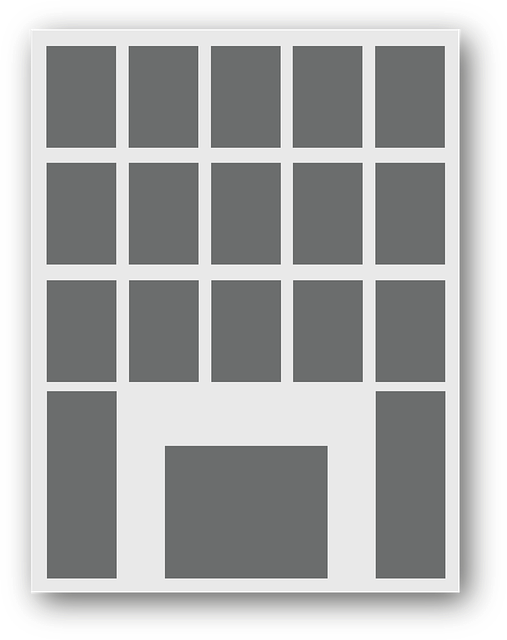Proactive property management focuses on preventive measures to reduce costs and enhance building longevity. Regular inspections, routine maintenance, and predictive analytics identify potential issues early, avoiding costly repairs. This approach saves money, increases tenant satisfaction, and ensures critical systems like HVAC, plumbing, and electricity operate efficiently. Data-driven insights target maintenance based on history and feedback, leading to longer-lasting properties and happier tenants.
Proactive property management is a game-changer in minimizing costly repairs. By understanding and implementing strategic approaches, property owners can significantly reduce maintenance expenses. This article explores powerful techniques such as regular inspections for early issue detection, preventive maintenance, and data-driven decisions to anticipate repairs. Adopt these proactive measures, and you’ll foster a well-maintained environment while avoiding the financial burden of surprise repairs.
- Understanding Proactive Property Management Strategies
- Regular Inspections: Early Issue Detection
- Preventive Maintenance: Cost Savings Key
- Data-Driven Decisions for Repair Prevention
Understanding Proactive Property Management Strategies

Proactive property management is a strategic approach that focuses on preventing issues before they become costly repairs. It involves regular maintenance, thorough inspections, and prompt action on potential problems. By implementing these strategies, property managers can extend the lifespan of buildings, reduce expenses for owners or investors, and enhance tenant satisfaction.
This method goes beyond reactive maintenance, where issues are addressed only after they arise. Proactive management includes routine checks, predictive analytics, and customized solutions to maintain properties in optimal condition. Regular inspections allow for early detection of minor problems, such as leaky pipes or faulty electrical systems, which can be fixed quickly and at a fraction of the cost of major repairs later on.
Regular Inspections: Early Issue Detection

Regular inspections are a cornerstone of proactive property management, enabling managers to identify potential issues before they escalate. By conducting thorough checks at set intervals, property managers can detect subtle signs of wear and tear or underlying problems that might go unnoticed otherwise. For instance, a routine inspection could uncover a leaky pipe, a faulty electrical connection, or a structural weakness in the building’s foundation. Early detection is key to preventing costly repairs because it allows for immediate action.
Instead of waiting for major breakdowns or safety hazards to arise, proactive management ensures that maintenance tasks are addressed promptly. This not only saves money in the long run but also maintains the property’s value and enhances tenant satisfaction. Regular inspections contribute to a comprehensive understanding of the property’s condition, enabling managers to implement effective strategies for preserving its integrity and functionality.
Preventive Maintenance: Cost Savings Key

Proactive property management places a strong emphasis on preventive maintenance, which acts as a powerful tool for cost savings in the long run. Regular upkeep and inspections can identify potential issues before they turn into costly repairs or even worse, complete system failures. By implementing routine checks, cleaning, and minor fixes, property managers can significantly reduce the likelihood of unexpected breakdowns.
This approach is particularly beneficial for major systems like heating, ventilation, and air conditioning (HVAC), plumbing, and electrical installations. Preventive measures ensure these critical components operate efficiently, extending their lifespan and minimizing the need for emergency repairs. As a result, proactive property management translates to substantial financial savings for both property owners and tenants.
Data-Driven Decisions for Repair Prevention

Proactive property management leverages data-driven insights to anticipate and prevent repairs, significantly reducing costs for both landlords and tenants. By implementing digital systems that track maintenance history, property managers can identify patterns and trends that may indicate potential issues before they escalate. For instance, regular checks on heating and cooling systems, plumbing, and electrical components through smart sensors and automated reminders can catch minor defects early on, preventing them from turning into costly emergencies.
This approach goes beyond routine maintenance schedules. Data analytics can also help in understanding tenant feedback and reports, correlating specific issues with certain areas or units. By analyzing this information, property managers can target their efforts more effectively, ensuring that resources are allocated where they are most needed. Ultimately, data-driven decisions lead to a reduced need for costly repairs, longer-lasting properties, and happier tenants.
Proactive property management is a game-changer in preventing costly repairs. By implementing regular inspections, preventive maintenance, and data-driven decisions, property managers can significantly reduce expenses and extend the lifespan of buildings. These strategies, such as early issue detection through routine checks and tailored maintenance plans, are essential components of modern property management practices, ensuring both cost savings and long-term asset preservation.




